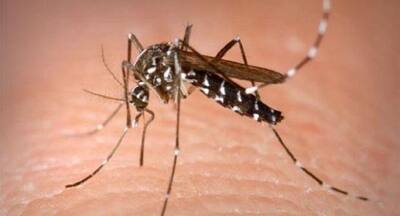Don’t Miss Out on the Latest Updates.
Subscribe to Our Newsletter Today!
WHO says India one of the only two countries to reduce malaria burden in 2018: Know how to prevent this disease

India deserves a pat on the back for becoming one in two malaria endemic countries to reduce the burden of the disease in 2018. Read on to know how you can get this disease and what to do about it.
According to the World Malaria Report 2019, released by the United Nations' World Health Organisation (WHO), India has seen a sharp reduction of 28 per cent in malaria cases between 2017 and 2018. The number of malaria deaths have also dropped from an estimated 16,733 in 2017 to 9,620 in 2018. The report says that India was the only country to increase its domestic funding to fight malaria among the countries with maximum burden. By achieving this reduction, India became one of the only two success stories among 11 countries facing the world's maximum malaria burden.
The only other country to achieve a drop in malaria cases was Uganda. This country achieved a reduction of almost 11 per cent.
The WHO report says that there was an estimated 228 million cases of malaria around the world in the year 2018, as compared to 231 million in 2017 and 251 million in 2010. It also says that there were about 4,05,000 deaths from malaria globally in 2018. This was an improvement from the 4,16,000 deaths in 2017 and 5,85,000 in 2010. Despite this achievement, the risk still remains high for India, which is the only non-African country among the top 11 countries with the most malaria cases.
Also Read
Causes of malaria
You may get malaria from a mosquito bite or from coming in contact with infected blood of a person suffering from malaria. A microscopic parasite is responsible for this disease. A mother can also pass it on to her unborn child. You may also get this disease via blood transfusions and if you share needles with an infected person. Infants, young children and the elderly are at particular risk from this disease.
Prevention measures
There are different types of the malaria parasite. Some kinds, the ones that may cause a milder form of the disease, can stay on in your body for years and cause relapses. So, if you suffer from malaria, you must ensure that the parasite is completely driven out from your body. You can do this by taking the proper medication and following your doctor's advice.
You must take care to avoid mosquito bites. Mosquitoes infected with malaria are active from dusk and dawn. Be very careful during this time. Wear trousers that cover your entire legs and long-sleeved shirts. Be generous with the application of insect repellent to exposed skin. You can also apply some on your clothing to be extra careful. You may also want to consider getting a mosquito net to use at night. It will keep you safe when you sleep.
There is one malaria vaccine approved for human use. This was launched only this year and is still not widely available as yet. But scientists are trying to develop a safe and effective vaccine that will give you protection against this disease. But till this is done, you have to take precautionary measures. Therefore, if you are planning to visit any place where this disease is common, talk to your doctor about some precautionary medicines. These medicines are the same as the ones used to treat the disease.


